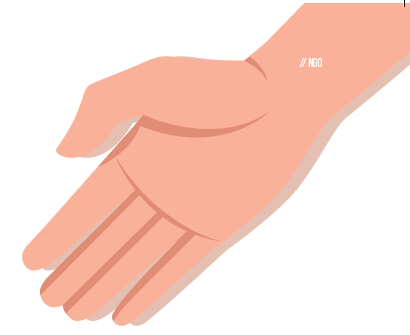Empowering With Awareness To Beat Cancer

The Roko Cancer Charitable Trust is spreading awareness about breast, cervical, oral and prostate cancer for prevention, early detection and elimination.
By Aatika H Jain
Giving back to the motherland is one of the ways in which non-resident Indians (NRIs) take pride in connecting to their roots. An NGO is encouraging NRIs to adopt their native Indian villages to create cancer awareness. The Roko Cancer Charitable Trust is running the ‘Adopt Your Village’ campaign in Punjab in order to augment cancer awareness in the remotest parts of the country. It urges NRIs to sponsor free medical camps, and early cancer detection and awareness camps.
According to a recent report, Call for Action: Expanding Cancer Care for Women in India, 2017, by EY, India has the third-highest frequency of cancer among its women at 0.7 million, increasing at the CAGR of 4.5-5 percent. Alarmingly enough, this is much lower than the real cancer cases estimated to be 1-1.4 million/year. Along with the escalating cancer cases, delayed detection further complicates the problem. Not only do they care expenses mount, but the mortality rate also does too. Low awareness levels, combined with dismally low screening, resulting in high incidences of cancer and consequent deaths.
The Roko Cancer Charitable Trust has been working indefatigably in the Indian sub-continent for more than a decade to create awareness about breast, cervical, prostate and oral cancer. “Cancer, if detected early, is fully curable,” says A P S Chawla, Chairman. The organization’s primary focus is, therefore, on increasing awareness about cancer.
“THE CANCER BURDEN AND MORTALITY RATE DUE TO CANCER IN INDIA IS ABNORMALLY HIGH BECAUSE OF LACK OF AWARENESS AND LACK OF ACCESS TO SCREENING AND DETECTION FACILITIES”Brig.
Brig. Bhanu Sud, Director, Roko
The Beginning
When Chawla lost his wife to the unforgiving hands of breast cancer in an untimely manner, he pledged to work towards greater awareness about breast cancer so that other lives could be saved. Thus was established the Roko Cancer Charitable Trust, in 2001 in London, under MKC trust. In 2005, it extended its operations in India. The fight was initially kick-started against breast cancer, the most prevalent cancer among Indian women. The disease still carries a social stigma in many regions of the country. “In rural areas, women don’t come forward to the screening even though it’s free at our camps. They are too shy and hesitant. Nor do they perform breast self-examinations in a timely manner, even after guidance from us,” says Sarita Chauhan, a volunteer associated with the organization for the past nine years, “We often followup on the cases in six months or a year.” Says another volunteer, Ruchi, “Our first task is to help them open up and be more receptive to what we are trying to educate them about.”
The objective of Roko Cancer was to assist women in self-examination, and early detection, emphasizing the significance of timely detection in treating cancer efficaciously. Over the years, the organization’s awareness drives began, including cervical, oral and prostate cancer too.

Leading The Way
Since its inception, Roko Cancer has emerged as a pioneer in the field of cancer awareness and screening. From launching the country’s first fully equipped mobile cancer detection unit to offering patient support, it has successfully extended its campaigns to more than 20 states and union territories. “The cancer burden and mortality rate due to cancer in India is abnormally high because of lack of awareness and lack of access to screening and detention facilities,” says Brig. Bhanu Sud, Director, Roko. The organization has been collaborating with several state governments and corporate agencies “to mitigate the disease burden and prevent cancer deaths due to ignorance and late detection,” he asserts.
Country’s first mobile cancer detection units
In December 2005, Roko Cancer flagged off India’s first fully equipped mobile cancer detection unit in Amritsar. These sophisticated units are capable of carrying out mammograms, ultrasounds and pap smear/LBC tests. They also help with arranging camps and de-addiction counseling even in the far-flung regions. A whopping number of successful early detection and screening camps, both free and sponsored, have been organized across the country.
“Our goal is to create awareness and bring screening facilities in the remotest regions of the country,” says Chauhan. Roko Cancer’s ultimate goal is to launch these state-of-the-art units in all states. The organization has also taken the initiative to train students, ANMs (auxiliary nurse midwives) and ASHA workers to maximize the outreach of cancer awareness and early diagnosis programmes.
Palliative care and patient support
Le Flamingo, a cancer survivor club by Roko Cancer, was launched on March 8, 2014. It aims to comfort the cancer patients in their difficult journey, bring cheer and inspire them to live life heartily despite the setbacks. Group meetings are organized regularly to keep up the good spirits of the patients.
“During a camp in Malwa region, we once diagnosed a woman with the last stage of breast cancer,” recalls Ruchi. “She didn’t have any resources to get help. We provided palliative care to her. Though she couldn’t be saved as it was the last stage, we hope we made her last days less painful.”
Plodding on
Plans are underway to open rehabilitation centers for cancer patients who have undergone surgeries and treatments. The first of the centers will be set up at Amritsar and will distribute prostheses and basic support equipment. The patients will also be offered counseling to help them cope with the mental and physical hardships of the illness. “It gives a great sense of satisfaction that we are giving back to the society by helping create cancer awareness in distant regions and making their lives better in whatever way we can,” says Chauhan.
















